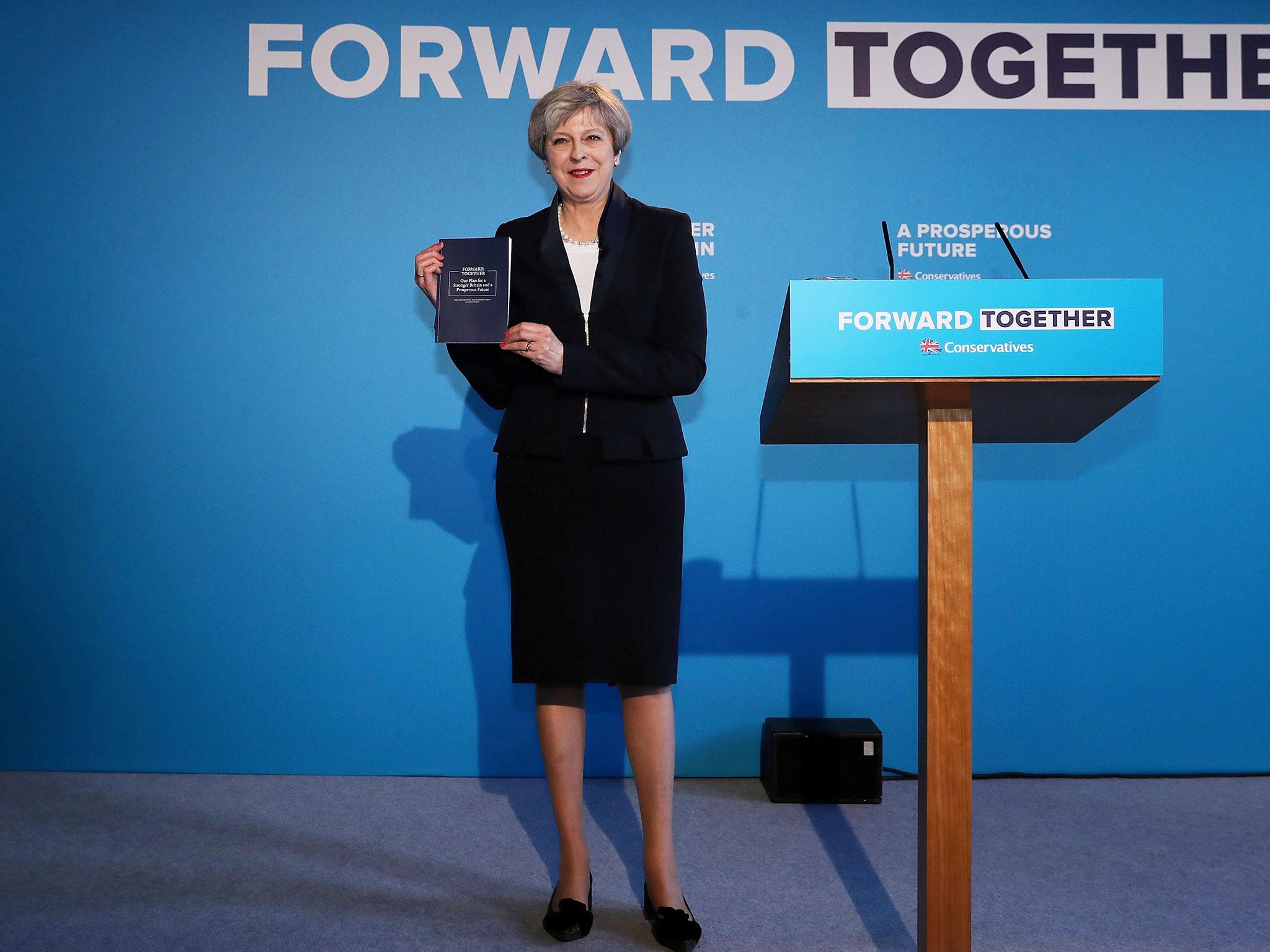It’s the EU’s Brexit manifesto, not Theresa May’s, upon which Britain’s destiny hangs
The Conservative manifesto reiterates the largely meaningless notion that ‘no deal is better than a bad deal’ but it offers no clues about how negotiations with the EU might be taken forward

Your support helps us to tell the story
From reproductive rights to climate change to Big Tech, The Independent is on the ground when the story is developing. Whether it's investigating the financials of Elon Musk's pro-Trump PAC or producing our latest documentary, 'The A Word', which shines a light on the American women fighting for reproductive rights, we know how important it is to parse out the facts from the messaging.
At such a critical moment in US history, we need reporters on the ground. Your donation allows us to keep sending journalists to speak to both sides of the story.
The Independent is trusted by Americans across the entire political spectrum. And unlike many other quality news outlets, we choose not to lock Americans out of our reporting and analysis with paywalls. We believe quality journalism should be available to everyone, paid for by those who can afford it.
Your support makes all the difference.From bland to brand, the launch of the Conservative manifesto is a conspicuous attempt to reposition the party around the vision its leader has for the future of the UK. Given that Theresa May’s appearances on the campaign trail have been largely flat, shifting the focus from personality to policy is perhaps timely for the Tories.
After the bold leftism of Labour’s manifesto pledges, some on the right might have anticipated an equal and opposite riposte from the Prime Minister, pegged on traditional Conservative assumptions. In some key respects that is far from the case. Most fundamentally, the libertarian, deregulatory instincts so beloved of Thatcherites have been thrown under the election battle bus. As Theresa May put it obliquely in her launch speech, government “should be a force for good, a force that steps up and acts in the interests of ordinary working people”.
To that end, the Prime Minister set out plans to force businesses to publish more information about executive pay; she promised to up the minimum wage; and she indicated that firms employing non-EU migrant workers will pay an increased price. Such meddling in corporate Britain will have libertarians spitting – but is likely to be popular among large swathes of the public.
Yet the travel is not all in one direction. While the manifesto includes a promise to provide free breakfasts to primary-age children, free school lunches for infants will be scrapped. The triple lock on pensions will be ditched and winter fuel payments will be means-tested. Theresa May might believe in the positive role of the state, but it doesn’t mean bonanza giveaways at every turn.
Perhaps the most eye-catching policy is the remodelling of the social care system so that people with assets of up to £100,000 will not be liable to pay from their own pocket – the current threshold is £23,250. The caveat is that the value of a person’s property will be included in calculating their assets. This means that the costs of residential and in-home care will be more significantly borne by individuals than is currently the case, albeit that payment can be delayed until after they have died. Labour has described the policy as a tax on dementia and it remains to be seen whether one consequence may simply be that ageing adults divest themselves of assets earlier in life in order to pass on more wealth to their relatives. In principle, the policy is not without progressive spirit, but its practical operation may have unintended consequences. Moreover, it does nothing to address the question of the variable quality of care across the country.
Also notable is the decision to scrap the 2015 election promise not to raise income tax or national insurance. Low-tax Tories may not be surprised, but they will hardly be thrilled. Still it is eminently realistic to conclude that taxes will need to rise in the coming years, not least to meet the Conservatives’ spending promises on the NHS and education. The lack of certainty over the nature of the UK’s future Brexit deal also means it is imperative for the next government to leave its economic options open. The truth is that the 2015 pledge was misguided in any event.
Not every misguided pledge from the past has been dispensed with, however. In reasserting the daft promise to reduce net immigration to less than 100,000, Theresa May contradicts her own contention that the British people are “not ideological”. The fact is that the question of immigration has become an ideological article of faith – a clear marker of an individual’s preference for parochialism or globalism. There is no economic benefit to maintaining a cap; nor is immigration the cause of Britain’s social ills. By standing by an unworkable, nonsensical pledge the Prime Minister undermines her claim to be acting in the national interest: the immigration target is populist claptrap.
On Brexit, the issue over which the election was called and on which so many assumed it would be fought, there is little detail to speak of for there is little new that can be said. The manifesto reiterates the largely meaningless notion that “no deal is better than a bad deal” but it offers no clues about how negotiations with the EU might be taken forward.
Indeed, it is perhaps the greatest irony of this election campaign that it has shown both the main parties willing, in certain key regards, to set out clear visions for Britain’s future. And yet to a considerable extent our future will be determined not by the hopes of 10 Downing Street’s next incumbent, but by the big beasts of the EU, whose private manifestos for Britain we can only guess at.
Join our commenting forum
Join thought-provoking conversations, follow other Independent readers and see their replies
Comments